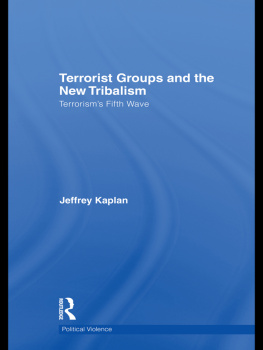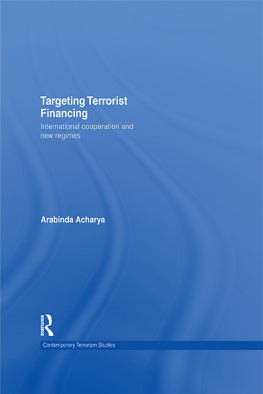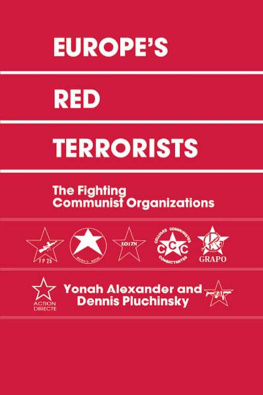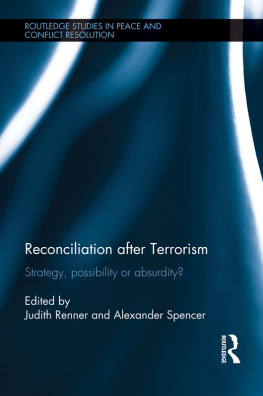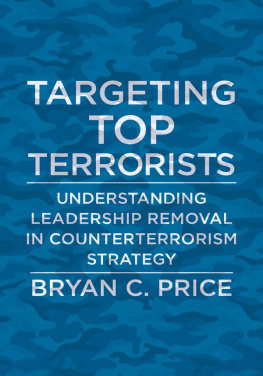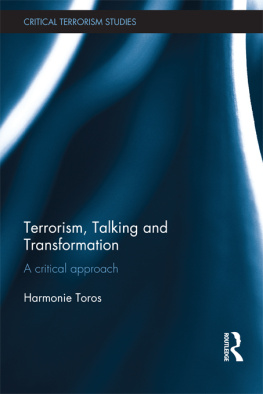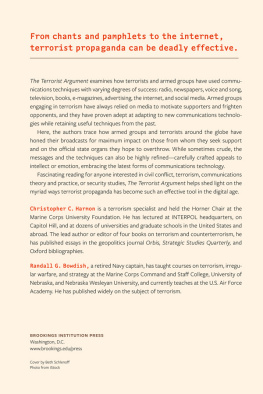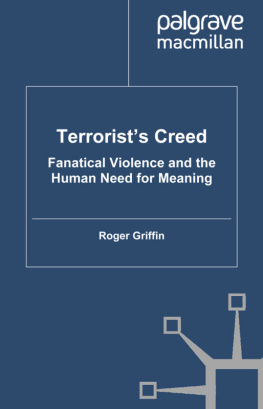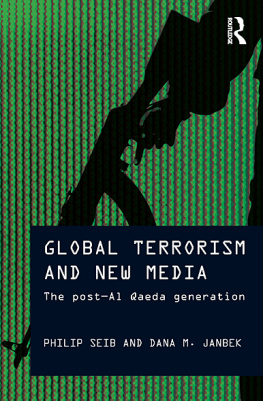
Talking to Terrorists
This book examines the doctrine of giving no concessions to terrorists, and uses empirical research to establish whether there is any link between negotiating with such groups and the spread of violence.
The logic of the no-concessions doctrine is based on the argument that other terrorist groups multiply when they realize that terrorism succeeds in achieving political goals. Proponents of the no-concessions doctrine have argued that there is a pattern in terrorist contagion which results from giving in to their demands. Statistical evidence for terrorist contagion is not convincing enough, however, as depicting an increase in terrorist incidences as a consequence of concessions could merely imply a flawed causality. Without an explanation for such correlations, we are left wondering whether other reasons could be decisive in the increase in terrorist actions.
Based on field research in four countries and interviews with current and former members of several different terrorist groups, this book establishes a qualitative relationship between concessions to terrorists on the one hand and (non-)contagion of other terrorist groups on the other. The deterrence effect, intended by the imperative never to concede, is seriously challenged. In fact, it can be precisely through concessions that groups mentalities and actions are called into question.
The book will be of great interest to students of terrorism and political violence, war and conflict studies, security studies and IR/politics.
Carolin Goerzig is a Post-Doctoral Fellow at the EU Institute for Security Studies in Paris and has a PhD in Political Science from Ludwig-Maximilians-University of Munich.
Contemporary terrorism studies
Understanding Terrorist Innovation
Technology, tactics and global trends
Adam Dolnik
The Strategy of Terrorism
How it works, why it fails
Peter Neumann and M.L.R.Smith
Female Terrorism and Militancy
Agency, utility and organization
Edited by Cindy D.Ness
Women and Terrorism
Female activity in domestic and international terror groups
Margaret Gonzalez-Perez
The Psychology of Strategic Terrorism
Public and government responses to attack
Ben Sheppard
The De-Radicalization of Jihadists
Transforming armed Islamist movements
Omar Ashour
Targeting Terrorist Financing
International cooperation and new regimes
Arabinda Acharya
Managing Terrorism and Insurgency
Regeneration, recruitment and attrition
Cameron I.Crouch
Religion and Political Violence
Sacred protest in the modern world
Jennifer L.Jefferis
International Terrorism Post 9/11
Comparative dynamics and responses
Edited by Asaf Siniver
Talking to Terrorists
Concessions and the renunciation of violence
Carolin Goerzig
Talking to Terrorists
Concessions and the renunciation of violence
Carolin Goerzig
First published 2010
by Routledge
2 Park Square, Milton Park, Abingdon, Oxon, OX14 4RN
Simultaneously published in the USA and Canada
by Routledge
270 Madison Avenue, New York, NY 10016
Routledge is an imprint of the Taylor & Francis Group, an informa business
This edition published in the Taylor & Francis e-Library, 2010.
To purchase your own copy of this or any of Taylor & Francis or Routledges collection of thousands of eBooks please go to www.eBookstore.tandf.co.uk.
2010 Carolin Goerzig
All rights reserved. No part of this book may be reprinted or reproduced or
utilized in any form or by any electronic, mechanical, or other means, now
known or hereafter invented, including photocopying and recording, or in
any information storage or retrieval system, without permission in writing
from the publishers.
British Library Cataloguing in Publication Data
A catalogue record for this book is available from the British Library
Library of Congress Cataloging-in-Publication Data
A catalog record has been requested for this book
ISBN 0-203-84697-4 Master e-book ISBN
ISBN10: 0-415-57997-X (hbk)
ISBN10: 0-2030-84697-4 (ebk)
ISBN13: 978-0-415-57997-1 (hbk)
ISBN13: 978-0-203-84697-1 (ebk)
Contents
Preface
When interviewing members of listed terrorist groups, it was noteworthy that many of them liked to express themselves in metaphors: while Islamists in Egypt describe their struggle as knocking on doors, Kurds emphasize that they have no nose, no mouth or no eyes. And while Colombians like to talk of windows of opportunity, Hamas members stress that they have no space, no room and that their house is occupied. What these metaphors have in common is that they refer to doors, rooms and windows. Clearly, offering rooms of communication and opening doors and windows of opportunity is a language expressive of hopes and desires to talk and to be heard. These hopes are often frustrated by limited possibilities of expression.
While the drivers of the groups were quite different, all groups resorted to violence because their voices were not translated into a peaceful message. Without a voice, people in Egypt can choose between the regime or nothing. The marginalization of spaces to express protest can thereby usher in intercultural alienation. For example, when offering Kinderschokolade this was rejected by youngsters with the remark that they are forbidden to eat chocolate originating from countries that ridicule the prophet Mohammed. The only way of protesting against an undemocratic regime that is, after all, supported by the West is to support the oppositionthe Egyptian Muslim Brotherhood whose success is explained by many with a protestation vote as a case in point. It was therefore not always easy to ask the right questions. In a highly sensitive atmosphere, researching Islamist extremism in itself is often perceived as demonstrative of Islamophobia. One interviewee was in fact very happy when I told him that the research is designed not only to investigate Islamist extremists but also to look at Colombia and the PKK in Turkey. The interviewees were afraid of stigmatization and being subject to judgment according to Western norms. Their emphasis was on developing their own model of democracy.
In Colombia, the lack of economic alternatives and a war on drugs further fueling scarcity breeds the recruitment ground for criminal terrorism. If the paramilitary organizations truly recruit the same people as the guerrillas, and if the paramilitaries and guerrillas indeed collaborate in drug cultivation, the question for the political couleur is justified. Yet, it is only a small step from need to greedespecially when such actions as Plan Colombia or Plan Patriota destroy the last alternatives of subsistence. This is the very real scenario of a war dynamic in which the different forms of violence are mixing, becoming one and the same. In such a scenario, the only way in which to subsist is to offer room to the unwelcome guests of cocaine and poppy which are so hard to get rid of and which come to occupy the entire house. The insistence of one interviewee that the Colombian conflict will either end in a win-win or lose-lose opens some space for hope, as it shows the acceptance that all are participants in the same boat. At the same time, the use of military means to counter terrorism in Colombia has clearly led to a lose-lose scenario which further undermines the state and lets the coca farmer bond more strongly with the guerrillas.


